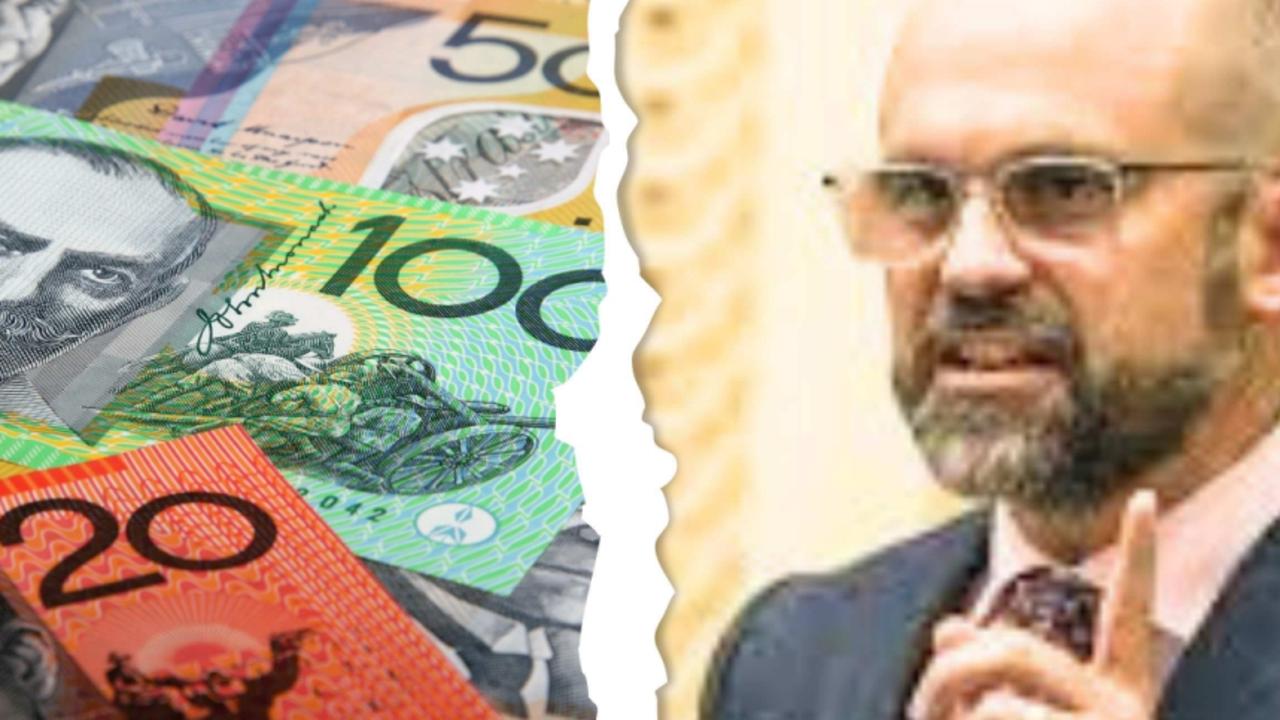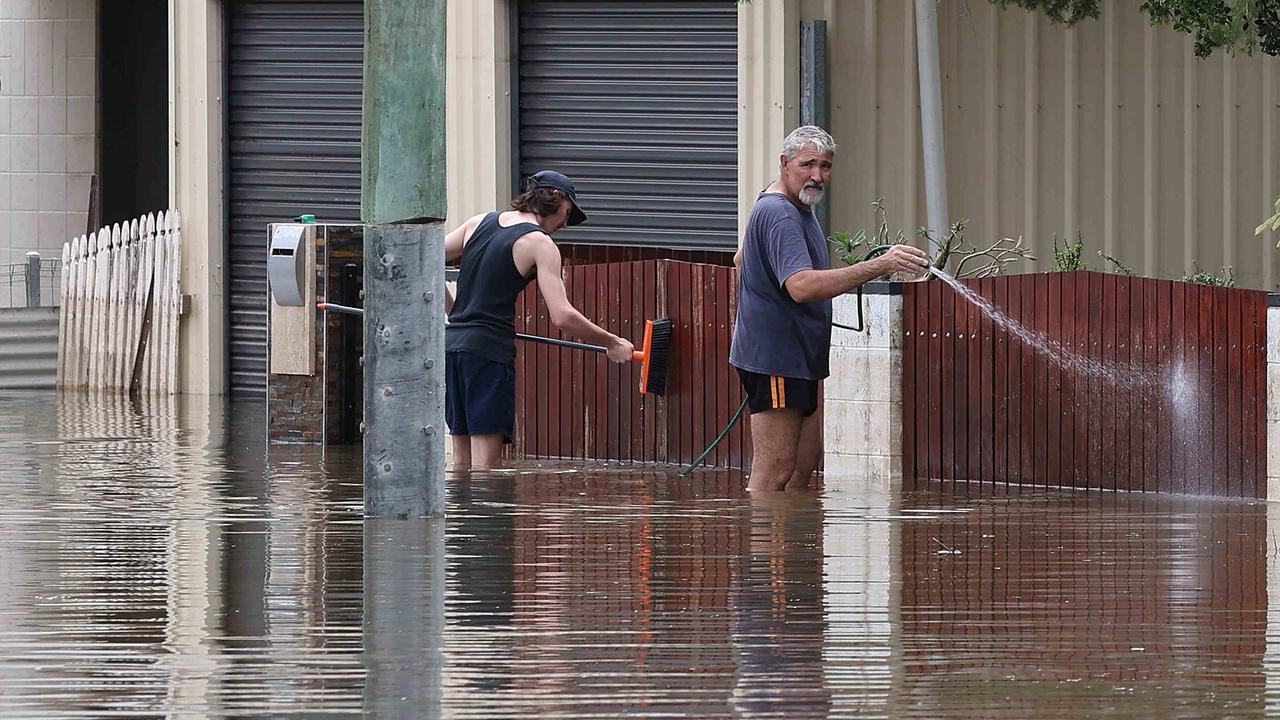Anger as hundreds of WWI graves left without headstones after funding cuts
Remembrance Day will be forgotten for hundreds of Diggers in unmarked graves after the federal government axed funding to a program to provide headstones for unmarked WWI graves.
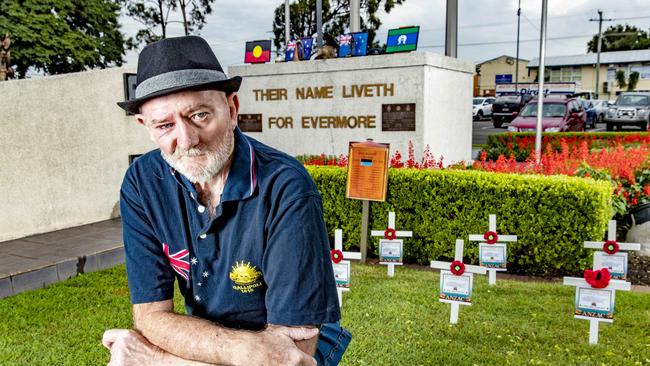
QLD News
Don't miss out on the headlines from QLD News. Followed categories will be added to My News.
Hundreds of Diggers will be left in unmarked graves for a further four years after the federal government axed funding to a program to provide headstones for WWI graves.
A Logan historian has joined a bayside MP and the Shadow Veterans’ Affairs Minister to slam the federal government’s plans, revealed this week, to axe funding for the program dedicated to marking the private graves of World War I veterans.
The federal program, which had initially received $3.7 million under the previous Coalition government, had paid for 1189 markers on the graves of men and women who served in World War I.
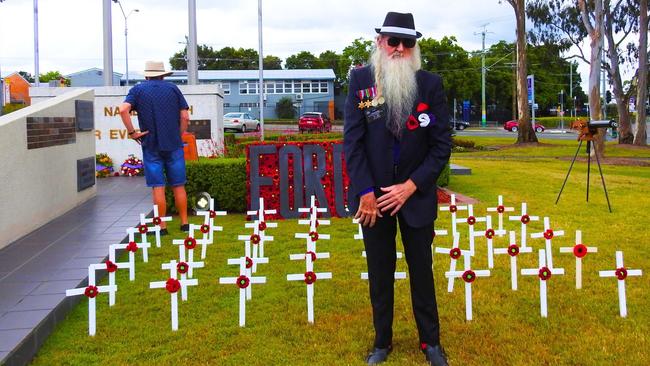
Labor had pledged to match the funding to continue supporting the headstone project during the 2022 election campaign.
However, Bowman MP Henry Pike revealed that this week’s Senate Estimates cut funds to a mere $437,000 over the next four years.
Mr Pike said the recent cuts followed the federal government first slashing the program’s funding in the 2023 budget by more than half to $1.5 million over four years.
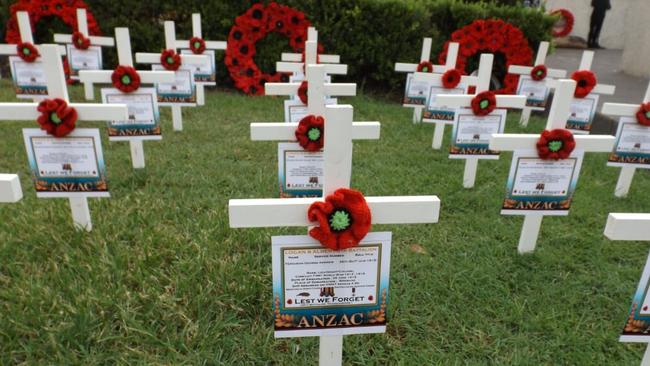
The condemnation sparked a debate on government priorities and commitment to honouring the nation’s military history.
Logan Museum’s Mic Noble, known for immortalising 300 Logan Diggers with a startling display of hundreds of white crosses for Anzac Day in 2021, was speaking out about the federal program cutbacks ahead of today’s Remembrance Day services.
Mr Noble spent two years creating his white crosses, methodically transcribing the names of each Digger on to the crosses after he uncovered a plaque at the now defunct Logan and District RSL sub-branch.
The plaque was one of the items Mr Noble rescued from the RSL when it closed at Logan Central in October 2019.
Mr Noble, who is recovering from a devastating brain swelling, said he was saddened to hear of the federal government plans to axe the funding, revealed at this week’s Senate Estimates hearings.
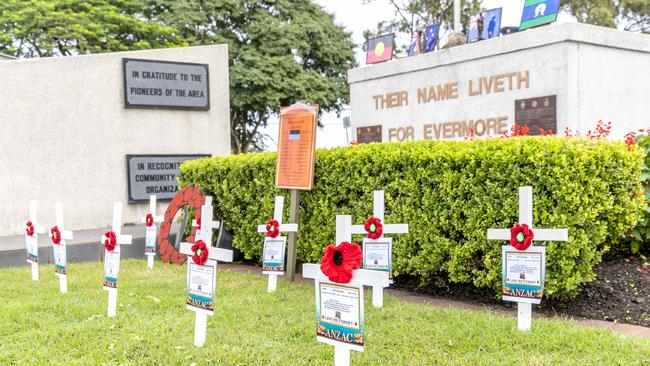
“The federal government should pay respects to every man and woman who has served for this country,” Mr Noble said.
“The men and women gave their lives for the country – the least the country can do is to mark their graves.”
Despite the brain swelling, Mr Noble spent days before Anzac Day in 2021, planting the 300 white crosses in front of the Logan cenotaph to stage the city’s biggest and best Anzac Day service.
This year, after bouts of radium treatment, the much-loved historian made his mark attending the Remembrance Day service at Logan Central cenotaph.
A Veterans’ Affairs Department spokesman said the government was committed to the private graves grants program and said funding cuts were from savings to administrative costs.
“There has been no funding cut to the grant funding offered under the program - rather the cost savings have been identified in the administration of the program,” the spokesman said.
“The grant funding offered to the community for marking previously unmarked graves of World War I veterans is the same.
“In 2023-24, this program delivered funding for 42 graves of veterans whose deaths were not related to their war service to be marked around the country and 44 veterans were also identified to be eligible for official War Grave status and commemoration.”
The spokesman said for the 2024-25 funding, the government was offering up to $105,000 total funding with individual grant funding increased by $170, with up to $620 available per grave marker.
Mr Pike and Shadow Minister for Veterans’ Affairs, Barnaby Joyce MP also launched a scathing criticism of the government’s plans to slash the funding on Remembrance Day.
“This is a disgrace and the decision to cut funding for such a meaningful program on Remembrance Day shows a lack of respect for our history and those who served,” Mr Joyce said.
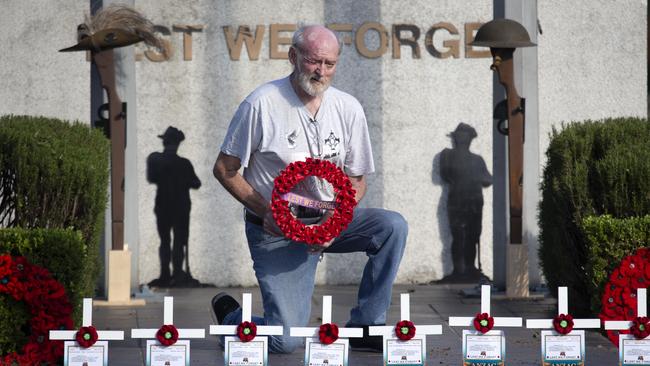
“The Department of Veterans’ Affairs statement that only $18,000 was spent under the program in 2023/24 for 42 graves is unbelievable.
“This further reduction in funding disrespects the memory of our veterans and the commitment they made.”
An estimated 331,800 Australians were deployed during the World War I, with approximately 60,000 killed or listed as missing in action.
About 271,800 servicemen and women returned to Australia, many of whom suffered injuries and afflictions from the war.
Mr Pike said 170,000 veterans came back from the war with injuries and stressed the importance of recognising their contributions and sacrifices.
He said the program was designed to assist committed individuals and organisations in identifying and marking the unmarked graves of World War I veterans, preserving the memory of those who fought and died to protect Australia’s values and way of life.
Veterans’ organisations, including the RSL, have now called for a reassessment of funding allocations to ensure the legacy of World War I veterans is preserved appropriately.
Originally published as Anger as hundreds of WWI graves left without headstones after funding cuts



